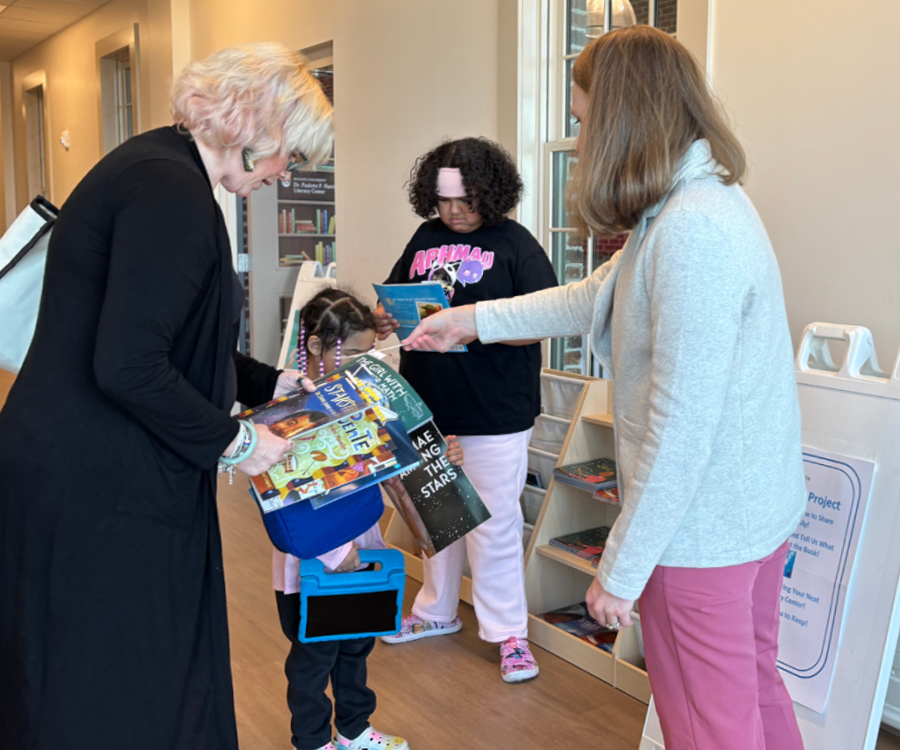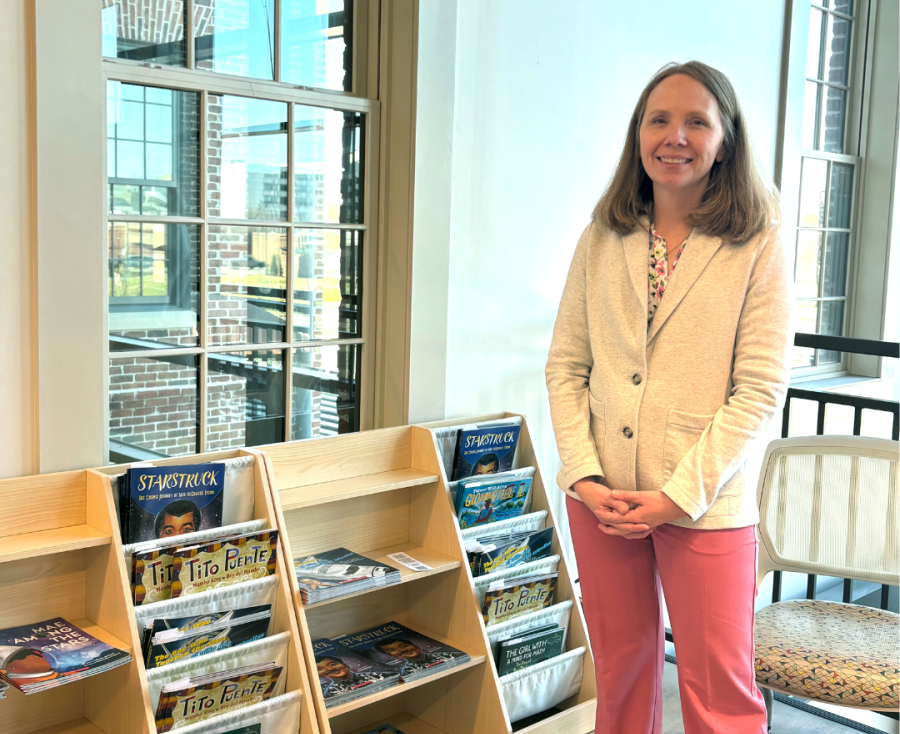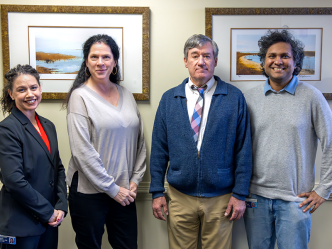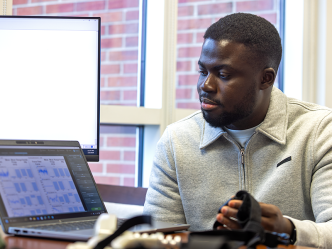Karen Collier, PhD, an assistant professor in the Department of Teaching and Leading of Augusta University’s College of Education and Human Development, is making it her mission to create awareness and improve science, technology, engineering and math education, or STEM, in Richmond County.
About two-thirds of Americans see K-12 STEM education in the U.S. as average or below average, according to the Pew Research Center.
Collier is leading a STEM literacy project housed at the Dr. Paulette P. Harris Literacy Center. One of the objectives of the project is to expose more elementary students to STEM while challenging existing stereotypes.
“STEM has typically been dominated by white males from higher socioeconomic backgrounds. As a result, people from underrepresented groups often don’t see themselves as members in the field,” Collier said. “So, if I was an elementary student who didn’t fit that stereotype, even if I was good at science or I’m good at math, I might think, ‘That’s not really for me,’ because I don’t fit that ideal stereotype that’s in my head.”
One way the project hopes to do this is by introducing students to books featuring a variety of characters from different backgrounds, allowing them to envision themselves in STEM careers.

“There are so many career opportunities that people just don’t realize are out there,” Collier said. “I think, just opening their eyes and saying, ‘Hey, I could be an astronaut, or I could work for NASA, or I could be a mathematician and do equations,’ helps them see the possibilities of what they can achieve.”
By focusing on nonfiction books at the elementary level, Collier hopes to encourage students and families to explore STEM career paths earlier instead of waiting until high school.
She intentionally selected the books based on characters she felt students could relate to so they would be inspired to make an impact in their communities.
“One of the books is about a football player who returned to his home community to create community gardens. He’s not a scientist or mathematician or university-trained, but he made a positive impact on his community’s ecology,” Collier said. “It’s not necessarily a precise stereotype of a book I’m looking for, but just kind of out-of-the-box thinking of the positive impact on the ecology of a community and shows how science can create positive change.”
The STEM literacy project was made possible through a $3,500 research grant funded by the College of Education and Human Development in collaboration with the Harris Literacy Center.
Judi Wilson, EdD, dean of COEHD, emphasized the significance of this initiative in expanding access to STEM for young students.
“Early exposure to STEM through engaging and representative literature is critical in shaping a child’s perception of what is possible,” said Wilson. “Dr. Collier’s project is not just about books – it’s about building confidence, breaking barriers and showing students that STEM is for everyone, regardless of background.”
Collier also highlighted the value of integrating literacy with STEM education.
“Incorporating the Harris Literacy Center brings in a whole community that wouldn’t necessarily be interested in a STEM idea at the second-grade or third-grade level because it’s not a focus,” Collier said. “But when you tie it with literacy, it gains more traction and support.”

Betsy VanDeusen, PhD, director of the Harris Literacy Center, believes the project directly addresses the critical need for STEM engagement among children in the Augusta community by providing culturally relevant literature that helps them see themselves in STEM fields.
“Access to high-quality, representative books is essential for literacy development and lifelong learning,” VanDeusen said. “Through Dr. Collier’s initiative, we are expanding family libraries in our community, ensuring that children and adults alike have meaningful, engaging books that support literacy and encourage curiosity and confidence in STEM.”
The grant allowed Collier to purchase bookstands and more than 600 books, resulting in four new displays at the Harris Literacy Center. Students are able to take those books home to build their own libraries with the goal of sparking an interest in STEM fields.
“STEM is so diversified; there are so many things you can do,” said Collier. “Everything from becoming a mathematician, working at universities or working for an agency, there are many career opportunities that people just don’t realize are out there.”
Each book in the project includes a sticker and a bookmark with a QR code that directs students to a survey. The goal is to collect data to expand the project and increase STEM literacy efforts.
“I want to take the survey data as far as I can,” Collier said. “Even if it’s a small sample, I can say, ‘Here’s the positive impact. I need more funds to keep this going.’ Even 12 comments showing a positive influence can help demonstrate the project’s value and hopefully lead to more funding for future expansion.”
 Augusta University
Augusta University




